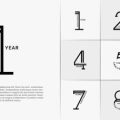1. Understanding the Landscape: Science, Spirituality, and the British Psyche
The interplay between science and spirituality has long shaped the fabric of British society. Historically, the UK has been a crucible for scientific discovery—think Newton, Darwin, and Hawking—yet it also possesses a rich tradition of spiritual exploration that threads through Celtic folklore, Anglican rituals, and contemporary interest in psychics and mysticism. This dual heritage forms a unique landscape in which rational inquiry coexists with a curiosity about the unseen. In Britain, scepticism often walks hand-in-hand with open-mindedness; many embrace evidence-based thinking while remaining receptive to spiritual experiences that defy conventional explanation. The British approach is neither wholly dismissive nor uncritically accepting; rather, it reflects a nuanced cultural attitude that values pragmatism but leaves room for wonder. As modern life grows increasingly complex and fast-paced, Britons continue to seek meaning in both scientific advancement and spiritual guidance, blending these perspectives in uniquely personal ways. Whether through engaging with local psychics or participating in philosophical debates, individuals across the UK are navigating this balance—demonstrating how science and spirituality can coexist within the modern British psyche.
2. The Modern UK Psychic: Roles and Perceptions
In contemporary British society, psychics occupy a complex position that blends tradition with modernity. Their roles have evolved from the stereotypical fortune-teller of yesteryears to multifaceted guides who address not only mystical concerns but also emotional and psychological needs. Today’s UK psychic is as likely to be found offering private consultations online or in urban wellness centres as at local fairs or historical sites. This evolution reflects changing societal attitudes toward spirituality and personal wellbeing.
Common Views and Stereotypes
Public perception of psychics in the UK ranges from scepticism to open acceptance. Some view them as valuable spiritual advisors, while others dismiss their practices as mere entertainment or superstition. Media portrayals often oscillate between these extremes, contributing to ongoing debates about credibility and authenticity.
| Viewpoint | Description |
|---|---|
| Sceptical | Questions legitimacy; associates psychics with trickery or manipulation. |
| Open-minded | Considers psychic insight as a supplementary tool for self-reflection or decision-making. |
| Cultural Appreciation | Values psychics for their role in preserving heritage and folk traditions. |
| Spiritual Seeker | Views psychics as facilitators of personal growth, healing, and connection to something greater. |
Reasons Britons Seek Psychic Guidance
The motivations behind consulting a psychic are diverse. While some seek clarity during periods of uncertainty—such as relationship dilemmas, career transitions, or bereavement—others are driven by curiosity or a desire to explore unexplained phenomena. Importantly, many clients do not view psychic consultations as replacements for conventional advice but rather as complementary perspectives that help balance rational thought with intuitive insight.
Key Motivations Include:
- Emotional support during challenging times
- Desire for reassurance about the future
- Coping with loss or grief
- Curiosity about spiritual matters or past lives
- Seeking guidance on life decisions beyond logic or science alone
This nuanced landscape illustrates how the modern UK psychic serves both practical and spiritual needs, reflecting the ongoing interplay between science and spirituality in British culture today.
![]()
3. Finding Common Ground: Rational Thinking Meets the Mystical
In the UK, the interplay between scientific thought and spiritual beliefs is both nuanced and pragmatic. British individuals have long prided themselves on a culture steeped in rational discourse, as exemplified by centuries of scientific innovation and philosophical inquiry. Yet, there remains a parallel openness to the mystical—whether through longstanding traditions like spiritualism, or modern practices such as consulting psychics for personal guidance. This duality is not viewed as contradictory but rather as a pragmatic synthesis that allows individuals to draw from both worlds.
The British approach to blending logic and spirituality often centres around critical engagement rather than blind faith. Many people approach psychic readings with a healthy dose of scepticism, viewing them as one tool among many for self-reflection and decision-making. This attitude is reinforced by cultural factors such as the British sense of humour and irony, which encourage questioning and prevent dogmatism. At the same time, there is an appreciation for personal experience—what works for the individual is respected, regardless of whether it aligns strictly with empirical evidence.
This harmony is further enabled by the UK’s multicultural landscape, where diverse beliefs are encountered daily. It is common for individuals to use scientific reasoning in their careers while also engaging in spiritual practices like mindfulness or tarot in their personal lives. The result is a unique cultural environment where science and spirituality coexist—not as adversaries, but as complementary pathways for navigating life’s complexities.
4. Personal Journeys: Navigating Doubt, Belief, and Everyday Life
In the UK, the intersection of science and spirituality is often played out in the personal journeys of individuals who seek psychic guidance while maintaining a respect for evidence-based thinking. This balancing act can be seen in how people approach psychics—not as an alternative to medical or scientific advice, but as a complementary perspective that addresses emotional or existential questions. Many Brits adopt a pragmatic approach: they remain open-minded yet discerning, treating psychic consultations as one tool among many for self-reflection and decision-making.
Practical Approaches to Consulting Psychics in the UK
The following table outlines some common ways people in the UK integrate psychic insights with a scientifically-informed lifestyle:
| Approach | Description | Example |
|---|---|---|
| Selective Engagement | Choosing specific areas (e.g., relationships or career) where psychic input feels most relevant | Consulting a psychic about relationship compatibility while relying on career coaches for work advice |
| Sceptical Curiosity | Attending readings for entertainment or reflection, not absolute truth | Booking tarot sessions at local fairs or events out of curiosity |
| Blending Modalities | Combining spiritual guidance with conventional therapies | Seeing both a counsellor and a psychic during periods of personal crisis |
| Community Discussion | Openly discussing doubts and beliefs within social circles | Participating in pub chats or online forums about psychic experiences and scientific perspectives |
Cultural Attitudes Toward Doubt and Belief
The British cultural landscape encourages healthy scepticism—a trait deeply rooted in national identity. This is reflected in the way individuals weigh psychic experiences against rational inquiry. Rather than seeking definitive answers, many clients view their sessions as opportunities for introspection or creative problem-solving. The ability to hold space for both belief and doubt allows people to navigate modern life with flexibility, drawing on both science and spirituality as circumstances demand.
Summary of Practical Insights
- Psychic consultations are approached with discernment rather than blind faith.
- There is an emphasis on personal responsibility—clients often cross-reference psychic insights with empirical knowledge.
- The UK context supports open dialogue about uncertainties, making room for both rational debate and spiritual exploration.
This nuanced approach enables individuals to benefit from multiple worldviews without abandoning critical thinking, ultimately fostering resilience and adaptability in everyday life.
5. Ethics and Responsibility: The British Approach to Psychic Practice
In the United Kingdom, the integration of psychic guidance into daily life is underpinned by a distinct ethical framework and a well-defined regulatory landscape. This reflects the British value of balancing personal freedom with societal responsibility. When considering psychic services, clients are often encouraged to approach these practices with both an open mind and a critical perspective, recognising that ethical standards play a crucial role in protecting their interests.
The Legal and Regulatory Framework
Psychic practitioners in the UK operate within specific legal boundaries, most notably under the Consumer Protection from Unfair Trading Regulations 2008. This legislation replaced the outdated Fraudulent Mediums Act of 1951 and aims to safeguard consumers from misleading or deceptive claims. Psychics are required to clearly state that their services are for entertainment purposes unless they can provide substantiated evidence for their abilities. This transparency is essential in maintaining public trust and ensuring clients have realistic expectations.
Professional Conduct and Client Well-being
Ethical practice among UK psychics extends beyond legal compliance. Many reputable practitioners choose to join professional bodies, such as The British Astrological and Psychic Society (BAPS), which set out codes of conduct emphasising honesty, confidentiality, and respect for client autonomy. Practitioners are expected to avoid making medical, legal, or financial promises, instead guiding clients toward professional advice when needed. This responsible approach reinforces the idea that psychic insight should complement—rather than replace—evidence-based decision-making.
Implications for Clients Seeking Support
For individuals seeking balance between science and spirituality in modern Britain, understanding these ethical frameworks is vital. Clients are encouraged to research practitioners’ credentials, seek transparent communication, and maintain healthy scepticism. By engaging with psychics who adhere to clear ethical guidelines, clients can access spiritual support while remaining grounded in practical reality—a hallmark of the British approach to navigating uncertainty. Ultimately, this system not only protects those seeking guidance but also elevates the integrity of psychic practice across the UK.
6. Looking Ahead: Evolving Attitudes and the Future of Spirituality in the UK
The intersection of science and spirituality is entering a transformative phase in the United Kingdom, shaped by both historical context and emerging trends. As British society continues to value empirical evidence and rational thinking, there is also a growing openness to integrating spiritual perspectives into daily life. Recent years have seen an increase in discussions around mindfulness, holistic wellbeing, and the psychological benefits of spiritual practices, all of which are being examined through scientific lenses. This shift suggests that attitudes are becoming less polarised, allowing for a more nuanced dialogue between science and spirituality.
Emerging Trends at the Crossroads
One notable trend is the incorporation of spiritual practices within mainstream healthcare and education. Mindfulness meditation, once regarded as fringe or alternative, now features in NHS mental health programmes and school curriculums across the UK. Scientific research supporting its efficacy has helped bridge the gap, making it more culturally acceptable and accessible. Similarly, topics like energy healing or psychic readings are increasingly approached with a blend of curiosity and scepticism, prompting calls for evidence-based evaluation while respecting personal belief systems.
The Role of Technology and Community
Technology has played a pivotal role in shaping contemporary spiritual experiences. Online communities, virtual readings with psychics, and access to global knowledge have enabled individuals across Britain to explore diverse spiritual frameworks without leaving their homes. This digital interconnectedness fosters both critical discussion and collective support, blurring traditional boundaries between science-led scepticism and spiritual exploration.
A Forward-Looking Perspective
Looking ahead, British society is likely to continue evolving towards a pluralistic approach that values both scientific rigour and individual spiritual experience. As public discourse grows more inclusive, we can expect further collaboration between researchers, practitioners, and everyday citizens. The emphasis will be on striking a pragmatic balance—recognising the importance of evidence-based practice while appreciating the personal significance that spirituality brings to many peoples lives. In this evolving landscape, UK psychics may find their roles shifting from solitary guides to facilitators who help individuals navigate the complex interplay between rationality and intuition.

